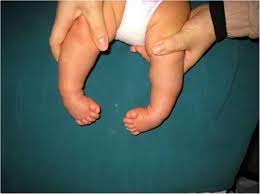
World Sight Day: How to protect your eyesight
As the world observes World Sight Day 2025, the Chairman of the Eye Health Committee of the Nigerian Medical Association, Prof Afekhide Omoti, has called on Nigerians to prioritize regular eye examinations and embrace healthier lifestyle choices to safeguard their vision and avert preventable blindness.
He emphasized that eye health ought to be regarded as a fundamental human right and a vital element of national progress, asserting that inadequate vision hampers education, employment, and social participation.
Omoti, a consultant ophthalmologist, expressed this viewpoint in a statement issued to honor the 2025 World Sight Day, which carries the theme "Love Your Eyes – Protect the Future."
World Sight Day is commemorated every second Thursday in October to enhance global awareness regarding vision impairment, blindness, and the significance of quality eye care.
Furthermore, Omoti raised concerns that millions of Nigerians are suffering from preventable visual impairment and blindness due to insufficient access to quality eye care.
Referencing statistics from the International Agency for the Prevention of Blindness, the ophthalmologist noted that approximately 24 million Nigerians experience some degree of vision loss, with 1.3 million being blind, highlighting that over 80 percent of these cases could have been prevented or treated.
The academic stated, "Eye health is not a privilege or luxury; it is a human right. It also serves as a cornerstone of national development. Consider these situations: A child unable to see the blackboard starts at a disadvantage. A professor who can no longer read loses his capacity to function effectively. A trader who loses their vision may forfeit their means of livelihood. A driver who cannot see clearly poses a risk to commuters. An elderly woman with advanced cataract who cannot obtain cataract surgery endures unnecessary suffering. A leprosy patient unable to visually inspect his extremities risks amputation.
“When we invest in eye care, we reduce poverty, boost education, and empower individuals to live full, productive lives. Little wonder that many of the sustainable development goals depend on good vision.”
He explained that the common causes of blindness included cataract, glaucoma, refractive errors, diabetic retinopathy, and tropical diseases, stating that the conditions robbed the young and old of their sight and economic potential.
The ophthalmologist called on the government to make eye health a public health priority by strengthening primary eye care, funding screening programmes, and integrating eye checks into schools and workplaces.
He also urged parents to monitor their children’s sight, noting that poor academic performance could sometimes be linked to undiagnosed vision problems.
“Every Nigerian deserves access to affordable and quality eye care. We are urging all Nigerian citizens to get their eyes tested regularly and to seek care early, especially for children and the elderly,” Omoti said.
He added, “Get your eyes tested – Early detection saves sight. Our people, both young and old, please, get your eyes tested. Do not wait for pain or blindness before seeking help. Eye check-ups are simple, affordable, and life-changing. On World Sight Day, it will be free in most eye centres.
“Educate your family – Every member of the family needs eye examinations. Children need eye exams too. Our parents, watch your children’s vision. Poor performance in school could be a sign that they simply need glasses.
“Support local clinics – Advocate for stronger eye care services in your community. Healthcare professionals and educators should be champions for vision. Integrate eye screening into schools, clinics, and community outreach.
“Encourage workplace screenings – Poor vision slows productivity, delays projects, causes avoidable injuries and a myriad of workplace errors. Healthy vision boosts productivity and safety.
“To our leaders at all levels of government – Eye health must be a public health priority. We need policies that strengthen primary eye care, increase funding, and ensure no Nigerian is left behind because of where they live or how much they earn.
“Let us remember that Nigeria has the knowledge
Omoti, who serves as the Chairman of the National Eye Health Committee within the Federal Ministry of Health, stated that the Federal Government has reiterated its commitment to incorporating eye health into the Primary Health Care system and to increasing the training of eye-care professionals.
Omoti urged Nigerians to participate in the "Love Your Eyes" campaign by engaging in straightforward activities such as undergoing regular eye examinations, assisting family and friends in obtaining care, and supporting community eye health initiatives.





